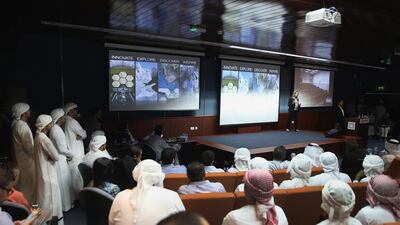Decisions made at last week’s meeting of the Abu Dhabi Executive Council will have a positive effect on the quality and amenity of life in the emirate, and will strengthen its future. At the meeting, under the chairmanship of Sheikh Mohammed bin Zayed, Crown Prince of Abu Dhabi and Deputy Supreme Commander of the Armed Forces and Chairman of the Executive Council, the Council committed billions of dirhams to important projects, including much-needed housing and infrastructure programmes.
Also approved was the merger of the Khalifa University, Masdar Institute and the Petroleum Institute, with the intention of creating a world-class school of learning and research. Separately these medium-sized institutions have established records of excellence in their fields, and together they should be a formidable force. There are obvious synergies – for example, between Masdar’s research into advanced energy and sustainable technology and the Petroleum Institute’s work in oil engineering – and the merger should result in efficiencies along with considerable cost savings as duplication is minimised. The university plan mirrors the announced mergers of investment companies Ipic and Mubadala, and banks FGB and NBAD, which are both expected to result in significant savings and higher profits.
Large sums of money have been earmarked for housing loans, and the development of schools, roads and other infrastructure, including drainage, sewage, electricity and telecommunications networks. A Dh249 million development project in the capital’s Al Zahiya district will involve street redesigns, and the provision of pedestrian and bicycle lanes. Residents will be especially pleased to know that street entrances and exits surrounding Abu Dhabi Mall will be improved. Temporary traffic barriers and old road markings in the area have long caused confusion for pedestrians and motorists alike. Spending will not be restricted to Abu Dhabi City – residents of Al Ain, Madinat Zayed, Al Qua’a and other regional areas will also see improvements.
While the global downturn and lower oil prices have affected the economy, the Abu Dhabi Government has always proven itself both resilient and resourceful. Efficiencies being made across the public sector will ensure the continuation of, and steady improvements in, the provision of infrastructure and essential services.

